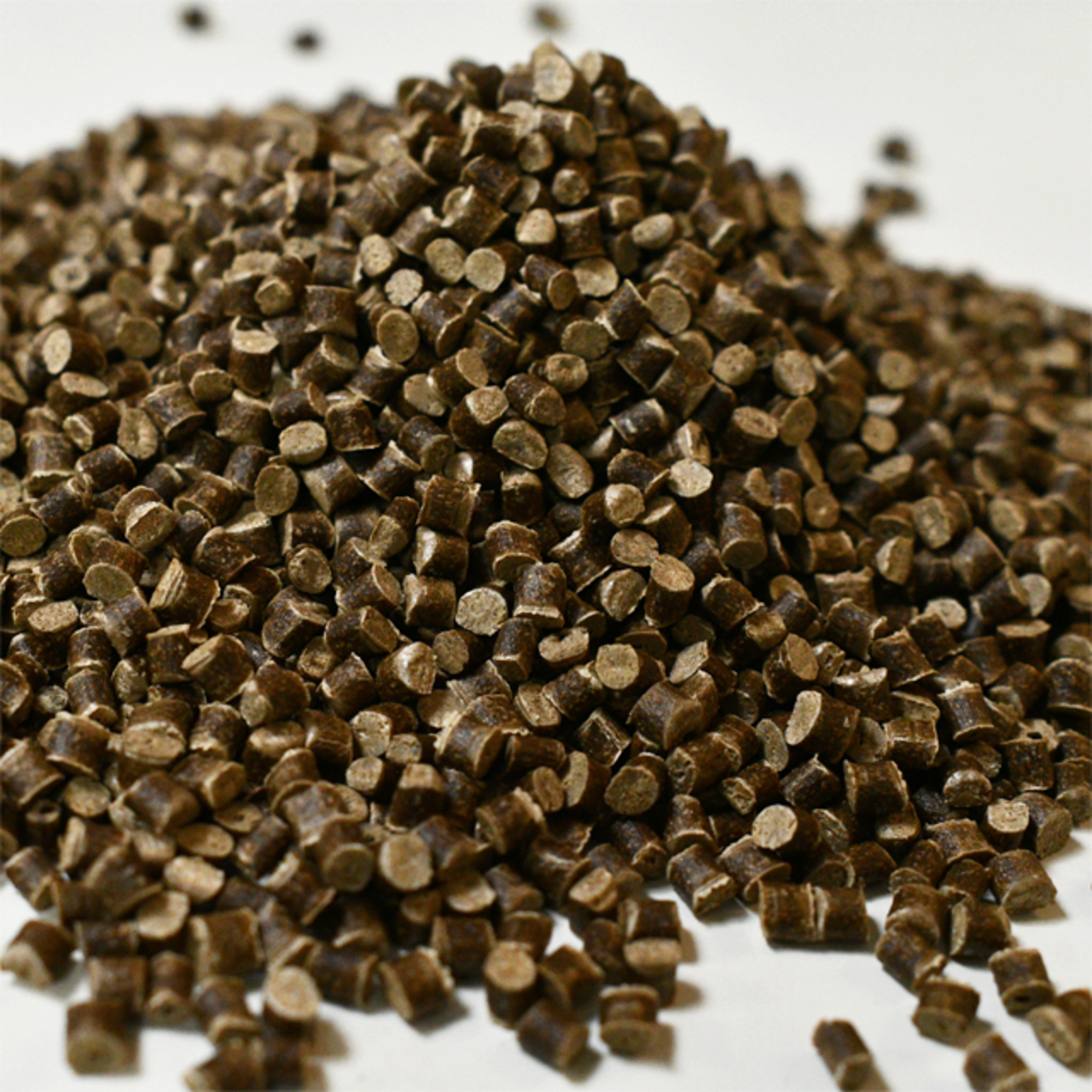4 Key Benefits of Sugarcane Bagasse-based Polypropylene
Sugarcane bagasse-based polypropylene is gaining popularity as a sustainable and eco-friendly material with a wide range of applications. Derived from the fibrous residue of sugarcane, this innovative material offers numerous benefits that contribute to a more sustainable future.
Overview of sugarcane bagasse-based polypropylene
Sugarcane bagasse-based polypropylene is an innovative and sustainable material that has gained significant attention in recent years. It is derived from bagasse, the fibrous residue left behind after sugarcane stalks are crushed to extract juice for sugar production. Rather than being discarded as waste, bagasse is transformed into a valuable resource through a series of manufacturing processes.

The resulting sugarcane bagasse-based polypropylene offers similar properties and functionalities to traditional polypropylene, including strength, durability, and versatility. It can be molded, shaped, and used in various applications across industries such as packaging, automotive, construction, and consumer goods.
4 Key Benefits of Sugarcane Bagasse-based Polypropylene
Benefit 1: Environmental Sustainability
One of the key benefits of sugarcane bagasse-based polypropylene is its contribution to environmental sustainability:
- Waste Utilization: Sugarcane bagasse-based polypropylene utilizes a waste product that would otherwise be discarded or burned. By repurposing this agricultural residue, it reduces waste and promotes a circular economy, where resources are used efficiently and waste is minimized.
- Renewable Resource: Sugarcane is a renewable resource that can be harvested multiple times. Unlike fossil fuels, which are finite and non-renewable, sugarcane can be grown and replenished, making it a sustainable source of raw material for polypropylene production.
- Reduced Carbon Footprint: The production of sugarcane bagasse-based polypropylene emits fewer greenhouse gas emissions compared to traditional polypropylene derived from fossil fuels. The carbon footprint of the material is lower due to the use of a renewable feedstock and the carbon captured during sugarcane growth.
- Lower Energy Consumption: The processing of sugarcane bagasse into polypropylene requires less energy compared to the production of traditional plastics. This results in reduced energy consumption and further contributes to the environmental sustainability of the material.
- Biodegradability Potential: Depending on the specific formulation and conditions, sugarcane bagasse-based polypropylene has the potential to be biodegradable. This means that under certain circumstances, it can naturally break down over time, reducing the accumulation of plastic waste in the environment.

Our innovative materials can naturally break down over time, reducing plastic wastes that go to landfills.
>>>> Learn more at: Switch to Sugarcane Bioplastics and Reduce Your Carbon Footprint Today
By incorporating sugarcane bagasse-based polypropylene into various products and applications, businesses and industries can reduce their environmental impact, promote resource efficiency, and contribute to a more sustainable future. This material offers a viable solution to the environmental challenges posed by traditional plastics and supports the transition towards a greener and more environmentally conscious society.
Benefit 2: Resource Conservation
First of all, by transforming this byproduct into a useful material, sugarcane bagasse-based polypropylene reduces the need for additional raw materials and maximizes the utilization of agricultural resources. This helps conserve resources and minimizes waste generation.
Traditional polypropylene is derived from fossil fuels such as petroleum and natural gas. In contrast, sugarcane bagasse-based polypropylene relies on renewable resources, specifically sugarcane, as its primary raw material. By reducing the reliance on fossil fuels, this material contributes to the conservation of non-renewable resources and helps mitigate the environmental impact associated with their extraction and consumption.
The circular economy principles are embedded in the production of sugarcane bagasse-based polypropylene. As a byproduct of the sugarcane industry, bagasse can be collected, processed, and used to create polypropylene, forming a closed-loop system. This approach minimizes the need for new materials and encourages the reuse and recycling of existing resources, fostering a more sustainable and resource-efficient economy.
The use of sugarcane bagasse-based polypropylene helps reduce waste throughout the product lifecycle. By repurposing sugarcane bagasse and integrating it into a valuable material, this innovative solution helps divert waste from landfills and promotes a more circular approach to resource management. This reduces the environmental burden associated with waste disposal and encourages a more sustainable use of resources.
Benefit 3: Versatility and Performance
Next key benefits of sugarcane bagasse-based polypropylene is its versatility and performance. This innovative material offers a range of advantages that make it an attractive choice for various applications:
- Similar Properties to Traditional Polypropylene: Sugarcane bagasse-based polypropylene shares many properties and characteristics with traditional polypropylene. It possesses excellent strength, durability, and resistance to chemicals, making it suitable for a wide range of applications. Whether it's in the automotive industry, packaging, construction, or consumer goods, this material can deliver comparable performance to traditional polypropylene.

This material can deliver comparable performance to traditional polypropylene.
- Customizable Formulation: The formulation of sugarcane bagasse-based polypropylene can be tailored to meet specific requirements. By adjusting the blend of sugarcane bagasse with other additives or materials, manufacturers can achieve desired properties such as increased flexibility, enhanced heat resistance, or improved impact strength. This flexibility in formulation allows for the customization of the material to suit different application needs.
- Processability and Compatibility: Sugarcane bagasse-based polypropylene can be processed using existing manufacturing techniques and equipment. It is compatible with common processing methods like injection molding, extrusion, and blow molding. This means that companies can integrate this material into their existing production processes without significant modifications or investments, making the transition to sugarcane bagasse-based polypropylene more seamless.
- Lightweight and Energy-Efficient: The lightweight nature of sugarcane bagasse-based polypropylene contributes to energy efficiency in transportation and reduces the overall weight of products. This is particularly advantageous in sectors such as automotive and aerospace, where weight reduction can lead to improved fuel efficiency and reduced emissions. The material's energy-efficient properties make it an environmentally friendly choice for applications that prioritize sustainability and energy conservation.
Benefit 4: Social and Economic Impacts
A significant benefit of sugarcane bagasse-based polypropylene is its positive social and economic impacts.
- Rural Development: Sugarcane bagasse-based polypropylene production can have a positive impact on rural communities, particularly in developing countries where sugarcane farming is prevalent. By utilizing sugarcane bagasse, which is typically considered agricultural waste, as a valuable resource, these communities can enhance their economic viability and contribute to sustainable rural development.
- Market Demand and Business Opportunities: The growing demand for sustainable and eco-friendly materials presents business opportunities for companies involved in sugarcane bagasse-based polypropylene production. Manufacturers can capitalize on the market shift toward more sustainable products, positioning themselves as leaders in green innovation. This can result in increased market share, improved brand reputation, and long-term business sustainability.
- Social Responsibility: Adopting sugarcane bagasse-based polypropylene demonstrates a company's commitment to social responsibility and environmental stewardship. By actively choosing a material that reduces reliance on fossil fuels and contributes to waste reduction, businesses can align their operations with sustainable development goals and promote a positive corporate image. This can attract socially conscious consumers and investors who prioritize environmental and social considerations.
Where to find sugarcane bagasse-based polypropylene for your business?
With a lot of benefits of sugarcane bagasse-based polypropylene make it an attractive choice for industries aiming to adopt more sustainable practices.
To find sugarcane bagasse-based polypropylene for your business, one of the leading providers is AirX, a company at the forefront of sustainability and carbon neutrality. They have made significant strides in the development of sugarcane bagasse-based polypropylene, positioning themselves as pioneers in the industry.
Sugarcane bagasse-based polypropylene is a revolutionary product that combines the desirable properties of polypropylene with the sustainability of sugarcane bagasse, the fibrous residue left over after juice extraction from sugarcane. This innovative material offers a wide range of applications across various industries, making it a versatile and eco-friendly alternative to traditional plastics.

AirX Sugarcane bagasse-based polypropylene
By choosing sugarcane bagasse-based polypropylene, businesses can significantly reduce their environmental impact. Unlike conventional plastic production, which relies heavily on fossil fuels, the production of sugarcane bagasse-based polypropylene promotes resource efficiency and contributes to a circular economy. This means that the material is derived from a renewable source and has a lower carbon footprint, helping to combat climate change.
Additionally, sugarcane bagasse-based polypropylene is carbon negative, meaning that it helps to remove carbon dioxide from the atmosphere, helping you meet your sustainability goals and contribute to a greener economy. This aligns with the goals of carbon neutrality and supports the transition to a more sustainable future.
Contact us
AirX, the world’s first carbon-negative bio-materialmade from coffee grounds, is a leading company specializing in the production of bio composite from recycled carbohydrates derived waste, including coffee grounds, coconut husk, husk, and bamboo. We are dedicated to promoting sustainability through the use of eco-friendly materials in their manufacturing process.
We are always here to help and provide the best service possible. If you have any questions or would like to receive advice and feedback directly from our sales staff, please do not hesitate to contact us. You can reach us through:
- Whatsapp: +84 969 742 950
- Email: [email protected]
We look forward to hearing from you!

